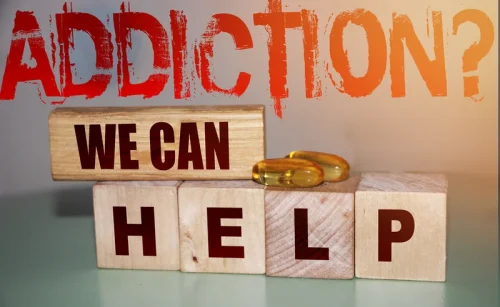
Regular use of amphetamines can also cause amphetamine psychosis. Symptoms include hallucinations, delusions, paranoia, and bizarre and violent behaviour. These symptoms usually disappear a few days or weeks after the drug use has stopped. When taken as prescribed, amphetamines and related drugs do not cause addiction. Methylphenidate is less likely to cause addiction than other amphetamines. In children who are hyperactive, however, amphetamines and related drugs, in the correct doses, can have a calming effect.

Side Effects
Check with your doctor or health care provider if you have any questions about the medication. There has long been particular concern about the power of methamphetamine and the potential for addiction. While the effects are largely the same as that for amphetamine, the strength and the way it is taken, can make methamphetamine an intense and difficult drug to come down from. Smoking very pure crystals causes a quick and very intense high, which often can lead to strong stimulation, paranoia and a nasty comedown.
Adult ADHD (Attention Deficit Hyperactivity Disorder)
Professional medical advice is encouraged when any kind of side effect appears. Consumption involving both alcohol or medication must also be avoided to minimize risks due to unforeseen issues that could lead to Damage. Withdrawal from amphetamines can cause drug addiction difficult and sometimes extended periods of fatigue, irritability, and sadness, potentially lasting up to a month. Other severe symptoms may also appear during this time such as appetite increase, problems sleeping, muscle ache issues or tremors. Check with your doctor right away if you or your child have anxiety, restlessness, a fast heartbeat, fever, sweating, muscle spasms, twitching, nausea, vomiting, diarrhea, or see or hear things that are not there. These may be symptoms of a serious condition called serotonin syndrome.

What Are The Dangers of Amphetamine Abuse?
While its behavioral and physiological effects are similar to those of cocaine, there are some major differences in the basic mechanisms of how these drugs work at the cellular level. But methamphetamine, like cocaine, results in an accumulation of the neurotransmitter dopamine, which appears to produce the stimulation and feelings of euphoria experienced by the user. Methamphetamine has a much longer duration of action and a larger percentage of the drug remains unchanged in the body. This results in methamphetamine being present in the brain longer, which ultimately leads to prolonged stimulant effects. Many amphetamines are Schedule II stimulants, which means they have a high potential for abuse and are legally available only through a prescription. When used for medical purposes, the doses are much lower than those typical among abusers of the drugs.
- Amphetamine is FDA-approved for the treatment of attention-deficit/hyperactivity disorder (ADHD) and narcolepsy.
- The plant contains ephedrine and pseudoephedrine, which are natural alkaloids, or nitrogenous organic compounds that cause a physiological response in humans.
- Amphetamines like Adderall are approved for treating conditions such as Attention Deficit Hyperactivity Disorder (ADHD) and narcolepsy.
- Your body tells you to sleep but your mind’s constantly on the go.
- Most forms of prescription amphetamines come in the form of pills or tablets but will occasionally be administered orally as a liquid.
- The use of ‘purple hearts’ (a combination of amphetamine and barbiturate) by thousands of young people led to the first post war drug craze (and media drug scare) in the UK.
This stimulant curbs impulsivity and improves attention and focus. While the effects of amphetamines are almost immediate, tolerance builds quickly, which frequently increases the amount needed to produce the desired effect. During periods of non-use, the user may recall the feeling of euphoria produced by the drug and desire to take it again.
Report Problems to the Food and Drug Administration
Talk with your healthcare provider if you feel like you are dependent on amphetamines or if they are not working to alleviate your symptoms. The effects of amphetamine use can range in severity and may include an increased heart rate, insomnia, paranoia, or even psychosis. On a psychological level, depression, suicidal thoughts/behaviors, aggression as well as anxiety, and mood swings have been reported along with potential sexual dysfunction.


Under the name Benzedrine, amphetamines were first used to treat obesity in the 1930s, due to their appetite-suppressing capabilities. Due to concerns over their side effects, however, amphetamines are increasingly being replaced by modafinil, a medication that promotes wakefulness. Scientists carrying out a review of 20 studies concluded that stimulants are probably helpful how long do amphetamines stay in urine for people with ADHD. Amphetamine activates receptors in the brain and increases the activity of a number of neurotransmitters, especially norepinephrine and dopamine.

Improved Focus and Attention
As a rough guide, methamphetamines can be detected in the blood around 4 to 8 hours after use, and in the urine for around 2 to 5 days after use. There are legal (prescribed by a doctor) and illegal amphetamines. People with a history of drug abuse or addiction should not use amphetamines. A review published in Cochrane in 2011 suggested that adults with ADHD might benefit from short-term use of amphetamines, but that they were unlikely to persist with the treatment because of adverse effects. Those who use mixed amphetamine salts, however, were more likely to https://ecosoberhouse.com/ continue with the treatment. They found that the brain structures of people who took stimulants for ADHD were more likely to resemble the brain structures of people without the condition than to resemble those with ADHD who did not use the drugs.
